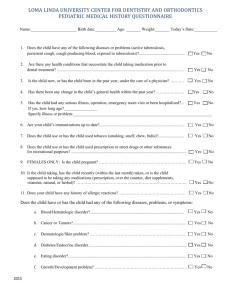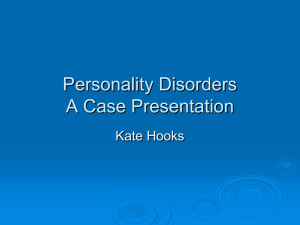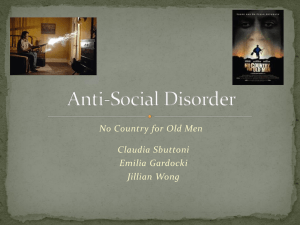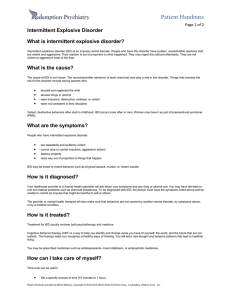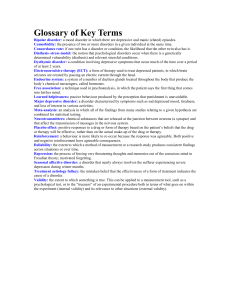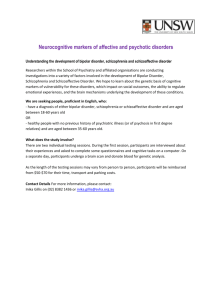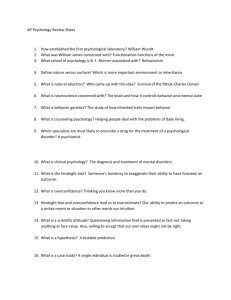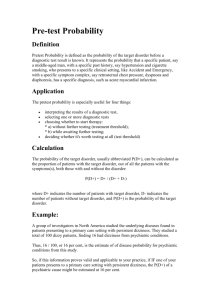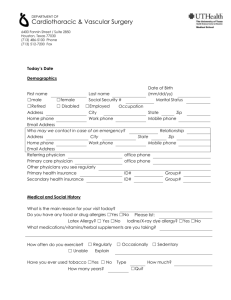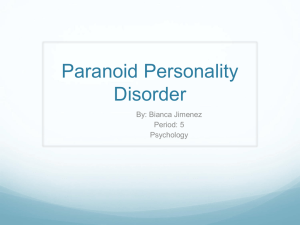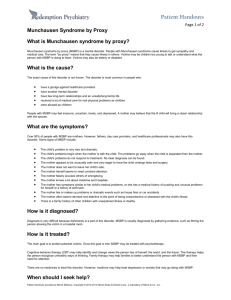Antisocial Personality Disorder
advertisement
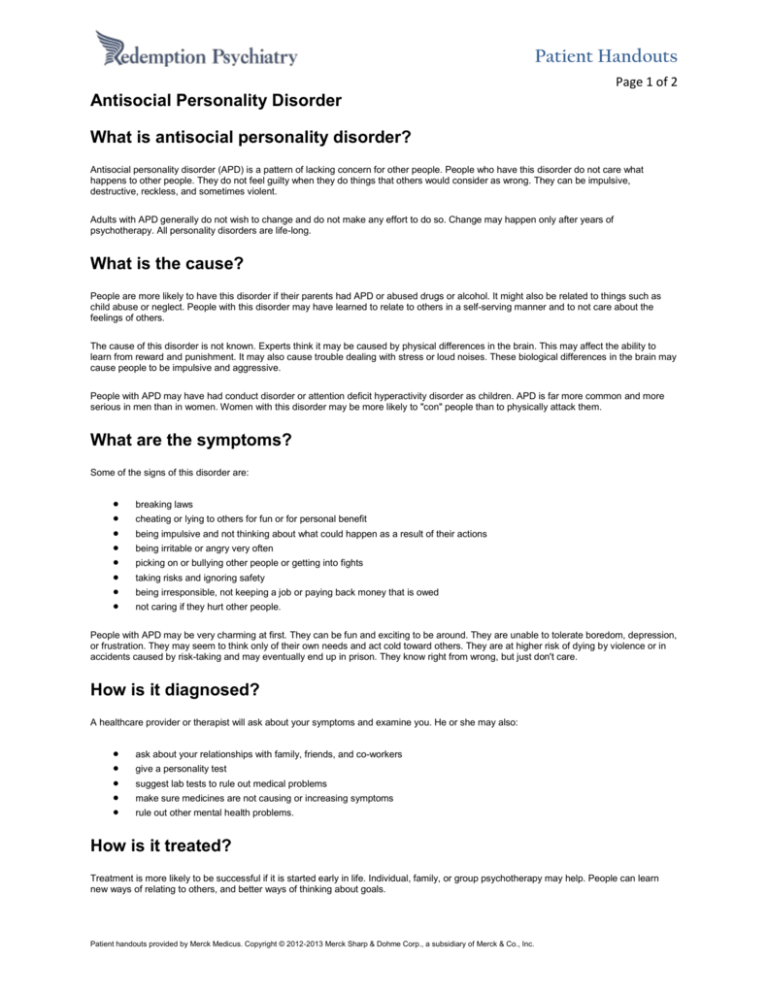
Patient Handouts Page 1 of 2 Antisocial Personality Disorder What is antisocial personality disorder? Antisocial personality disorder (APD) is a pattern of lacking concern for other people. People who have this disorder do not care what happens to other people. They do not feel guilty when they do things that others would consider as wrong. They can be impulsive, destructive, reckless, and sometimes violent. Adults with APD generally do not wish to change and do not make any effort to do so. Change may happen only after years of psychotherapy. All personality disorders are life-long. What is the cause? People are more likely to have this disorder if their parents had APD or abused drugs or alcohol. It might also be related to things such as child abuse or neglect. People with this disorder may have learned to relate to others in a self-serving manner and to not care about the feelings of others. The cause of this disorder is not known. Experts think it may be caused by physical differences in the brain. This may affect the ability to learn from reward and punishment. It may also cause trouble dealing with stress or loud noises. These biological differences in the brain may cause people to be impulsive and aggressive. People with APD may have had conduct disorder or attention deficit hyperactivity disorder as children. APD is far more common and more serious in men than in women. Women with this disorder may be more likely to "con" people than to physically attack them. What are the symptoms? Some of the signs of this disorder are: breaking laws cheating or lying to others for fun or for personal benefit being impulsive and not thinking about what could happen as a result of their actions being irritable or angry very often picking on or bullying other people or getting into fights taking risks and ignoring safety being irresponsible, not keeping a job or paying back money that is owed not caring if they hurt other people. People with APD may be very charming at first. They can be fun and exciting to be around. They are unable to tolerate boredom, depression, or frustration. They may seem to think only of their own needs and act cold toward others. They are at higher risk of dying by violence or in accidents caused by risk-taking and may eventually end up in prison. They know right from wrong, but just don't care. How is it diagnosed? A healthcare provider or therapist will ask about your symptoms and examine you. He or she may also: ask about your relationships with family, friends, and co-workers give a personality test suggest lab tests to rule out medical problems make sure medicines are not causing or increasing symptoms rule out other mental health problems. How is it treated? Treatment is more likely to be successful if it is started early in life. Individual, family, or group psychotherapy may help. People can learn new ways of relating to others, and better ways of thinking about goals. Patient handouts provided by Merck Medicus. Copyright © 2012-2013 Merck Sharp & Dohme Corp., a subsidiary of Merck & Co., Inc. Patient Handouts Page 2 of 2 Cognitive-behavior therapy (CBT) is a way to help you identify and change views you have of yourself, the world, and the future that are not realistic. This therapy helps you recognize unhealthy ways of thinking. You learn new thought and behavior patterns that lead to healthier living. Sometimes symptoms can be treated with medicine. Antidepressants may help if you have anxiety or depression. Mood stabilizers and antipsychotic medicines may also help to improve mood and to decrease aggressiveness and irritability. When should I seek help? Children and teens may show signs of antisocial behavior. This may be called Conduct Disorder. Some will outgrow it and some will not. Danger signs in children and teens are repeated lying, stealing, hurting animals, setting fires, and being irresponsible. Always seek treatment for a child if he or she shows these behaviors. Ask your healthcare provider for help. Seek help if you or a loved one has serious thoughts of harming or endangering others. If you suspect that someone you know has APD, consult your healthcare provider or contact Mental Health America for more help at 800969-NMHA. Patient handouts provided by Merck Medicus. Copyright © 2012-2013 Merck Sharp & Dohme Corp., a subsidiary of Merck & Co., Inc.
